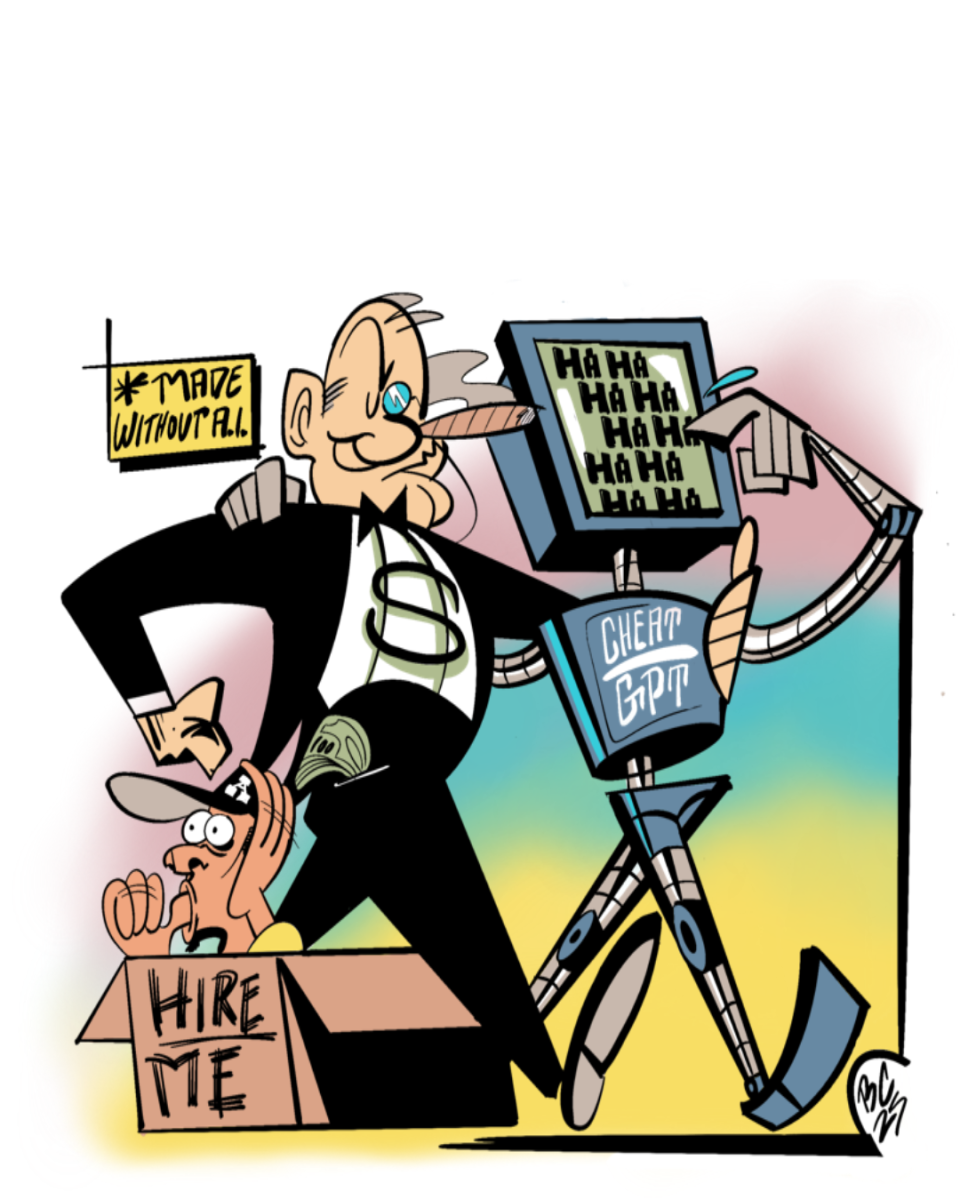Every time a new technology emerges, the same fear resurfaces: “Is this going to take my job?” From the Industrial Revolution to the rise of computers and the web, history is filled with panicked predictions about machines taking over human work. Now, artificial intelligence is at the center of this debate.
Naturally, many college students worry this fear may become a reality for their desired profession. But the reality is AI isn’t coming for your job — at least, not in the way people think.
Instead of replacing human workers, AI will transform the way jobs are done. The real concern isn’t that AI will completely take over jobs, but that those who aren’t equipped to use AI will be left behind.
AI still heavily relies on human intelligence to function effectively, and without a human’s unique input, these machines could essentially collapse. When it comes to automation, AI is more likely to take over repetitive and time-consuming tasks rather than eliminate entire jobs. This shift would allow workers to focus on higher-level responsibilities that require critical thinking, creativity and emotional intelligence.
It’s important to note the distinction between replacement and enhancement when discussing how AI will change the workforce. Integrating AI technology will optimize both AI and human potential, boosting efficiency and productivity while preserving the human skills that drive innovation and informed decision-making.
Augmented intelligence, a branch of AI, seeks to enhance human decision-making by providing machine-generated insights for both creative and analytical tasks. This broadens horizons for what individuals can achieve by combining human ingenuity and AI.
Those who resist this collaboration out of fear or skepticism are not only limiting their own potential but overlooking a powerful tool that will drastically further innovation.
As AI becomes more integrated into various industries, careers will evolve, requiring workers to adapt by developing AI literacy and learning how to effectively collaborate with these technologies. Those who embrace AI as a tool rather than a threat will be better positioned for success in the changing job market.
Much like the rise of the internet, those who resisted or neglected to learn how to use it were quickly left behind. As the digital age advanced, people who refused to adapt found themselves out of touch and less competitive in their fields.
The same will happen with AI — those who embrace it and learn how to use it effectively will stay relevant while those who resist may struggle to keep pace with the changes.
Like any powerful technology, AI comes with great responsibility. Incorporating this tool into the workplace will inevitably reveal many ethical concerns. AI has potential for biased decision-making and challenges with maintaining privacy and transparency. These are valid concerns that need careful consideration, ensuring that AI is used responsibly and fairly to benefit both individuals and organizations.
This is not to suggest addressing the ethical challenges of AI use will be easy, but its widespread adoption is inevitable. That’s why investing in AI literacy is essential. Staying informed and proactive allows us to shape its use responsibly while the technology continues to evolve. It all comes down to shifting our perception of AI.
Avoiding AI due to fear or doubt won’t stop its progression — it will only leave critical decisions in the hands of those who prioritize profit. Humans must figure out how to properly govern its use to maximize its benefits while minimizing its risks. AI is what people make of it, and whether it becomes a tool for progress or a source of disruption depends on how humans choose to regulate and use it.

